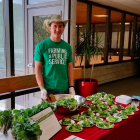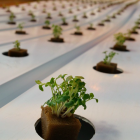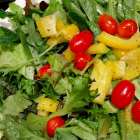South Orange entrepreneur Zachary Buck has said goodbye to the corporate world and gone back to his roots — literally. The former portfolio manager swapped the trappings of Wall Street for the 5,000-square-foot greenhouse he opened in April in Newark’s Branchburg Park.
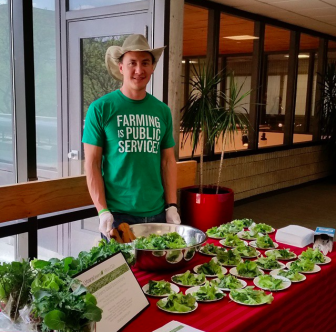
South Orange entrepreneur Zachary Buck founded Urbana Greens, a high tech agriculture startup that provides pesticide-free microgreens and herbs to local restaurants and individuals.
There, the founder of Urbana Greens, a high-tech agriculture startup, utilizes hydroponics and aquaponics in a controlled-environment to grow pesticide-free and sustainably grown-food micro-greens and herbs, which he provides to local restaurants as well as individual customers through a year-round Community Supported Agriculture (CSA) program.
Buck says his lifelong interest in horticulture began germinating in elementary school when he started tending Bonsai trees. From there, he practiced hydroponics in high school, and, later, learned about aquaponics, an integrated system for growing fish and plants together. How does that work exactly? As the urban farmer explains it, the fish waste offers an organic food source for the growing plants while the plants naturally filter the water for the fish.
While volunteering at Seth Boyden School, offering students an education on the background of high-tech agriculture, urban applications, and the related social and environmental benefits, the dad of two worked alongside Lorraine Gibbons, founder of Garden State Urban Farms.
Inspired to strike out on his own, Buck says transitioning out of finance and into the realm of agriculture has been “far less lucrative but much more emotionally sustainable.”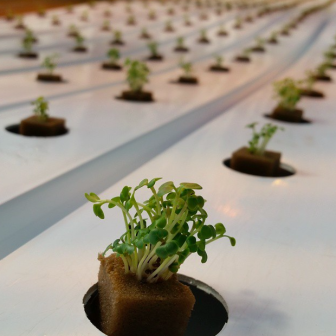
“For me, personally, I have a passion for it because of my past experience and enjoyment in gardening and ornamentals and plants,” says Buck, who adds that it’s been an ongoing concern of his that 90 percent of the leafy greens consumed in the Garden State are making a 2,500-mile-journey from California before they hit our salad plates. That trek takes a toll on both flavor and nutritional value, he notes.
Further, Buck points out that as the world’s population increases “there won’t be enough land on Earth to feed these people.” To that end, Buck is committed to finding “the sweet spot” between the most natural and traditional ways of farming while incorporating innovative processes and methodologies to produce the highest yielding as well as the freshest and most nutritious crops.
What separates his greens and herbs from others, he explains, is that they’re more than merely fresh: they are sold while they’re still alive, with their roots intact. Customers can reap the benefits of home harvesting by keeping the roots moist, tossing the plants in the fridge, and clipping them as needed.
In addition to delivering herbs, peppers, tomatoes, and microgreens, which are up to 40 times more nutritious than their mature counterparts, to restaurants in the Maplewood, South Orange and surrounding areas, Buck hopes to expand his territory to include Manhattan and Brooklyn.
Those interested in joining his CSA can expect to be introduced to some unique greens they won’t find in the supermarket, such as Tatsoi, Rainbow Swiss Chard, and Sweet Pea Shoots.
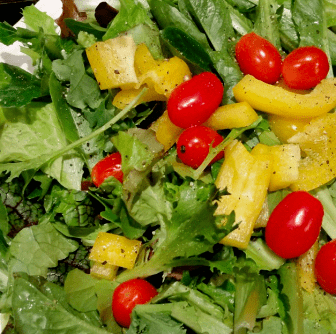 Giving back is an essential part of Buck’s business model. In just a few months, Urbana Greens has donated 500 pounds of living greens to charities and food pantries.
Giving back is an essential part of Buck’s business model. In just a few months, Urbana Greens has donated 500 pounds of living greens to charities and food pantries.
“Everybody wants better food,” Buck acknowledges. “We’re trying to hit on several fronts — have a social impact while naturally producing foods close to home that have more nutritional value and taste fresher.”
For more information, visit Urbana Green’s website or Facebook page.

